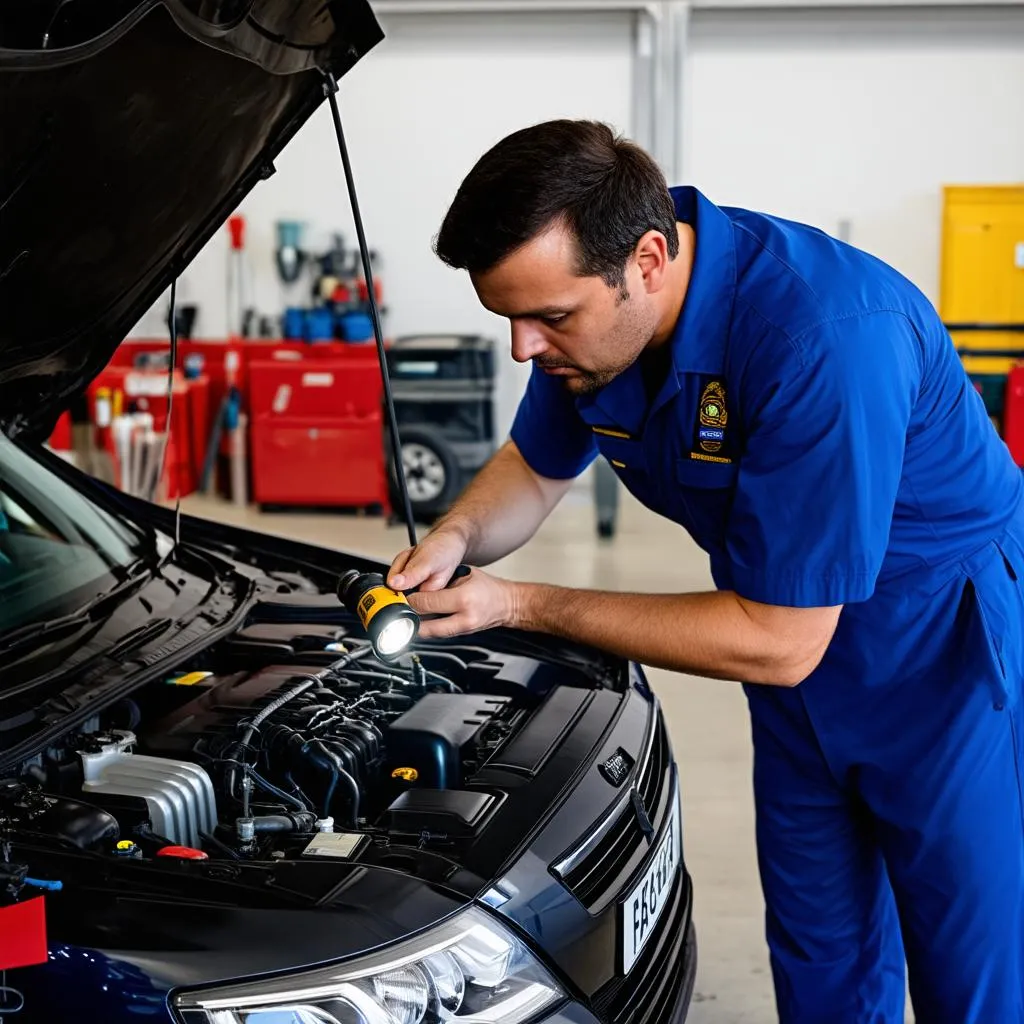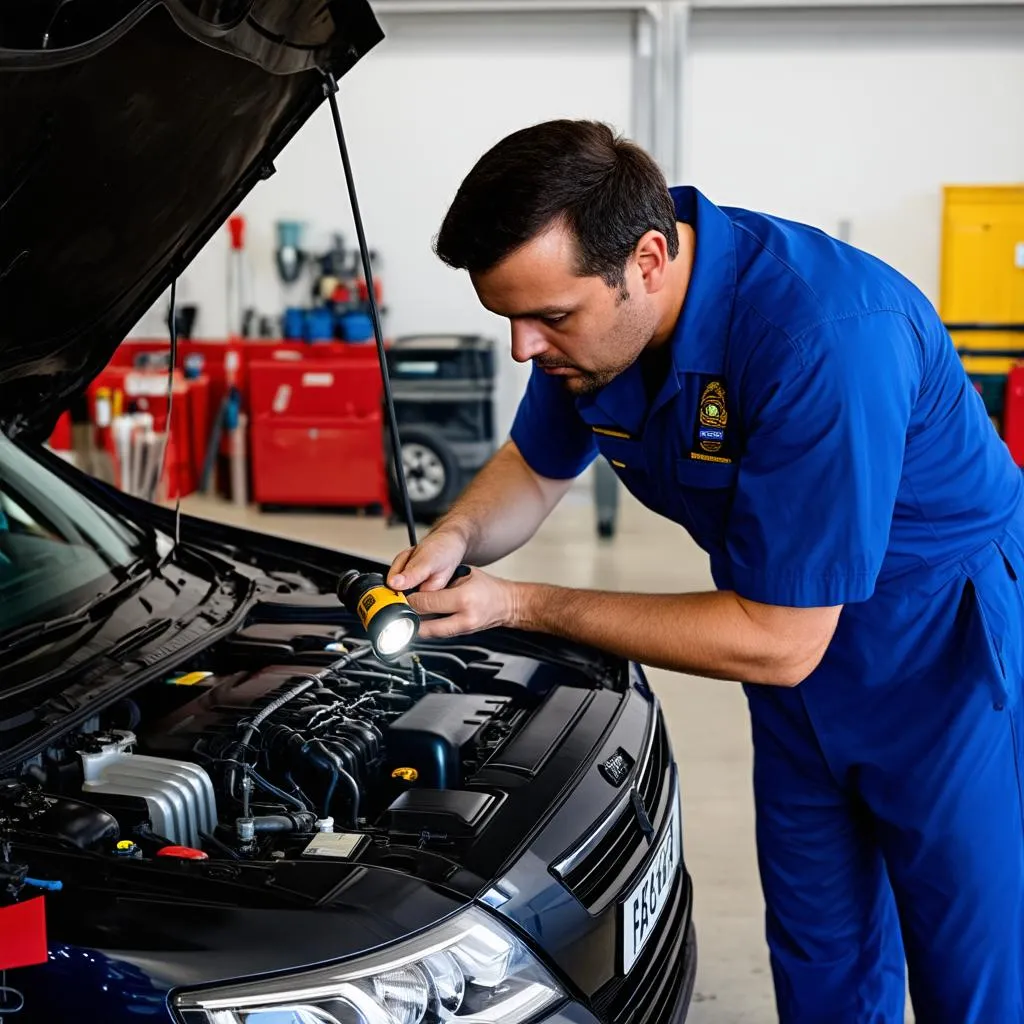Have you ever walked out to your car, hit the ignition, and been greeted by that dreaded check engine light? It’s like a mini heart attack for car owners, right? Now, imagine plugging in your OBD-II scanner, hoping for a simple fix, only to be met with the cryptic message “OBD Code P0456.” Talk about going from bad to worse!
Fear not, dear reader, for this article will act as your guide through the mysterious world of OBD code P0456. We’ll unravel its meaning, discuss its implications, and provide solutions to get your car back on the road and that pesky check engine light turned off.
What Does OBD Code P0456 Mean?
In the simplest terms, OBD code P0456 indicates a “Very Small Leak Detected in Evaporative Emission System.” But what does that really mean? Let’s break it down:
- OBD: Stands for On-Board Diagnostics. Think of it as your car’s internal health system, constantly monitoring its performance.
- Evaporative Emission System: This system prevents gasoline vapors from escaping into the atmosphere.
- Very Small Leak: There’s a leak somewhere in this system, but it’s tiny.
Think of it like this: Your car’s evaporative emission system is like a sealed container for fuel vapors. This code means there’s a tiny pinhole somewhere in that container.
Why Should You Care About a Small Leak?
You might be thinking, “It’s just a small leak, right? How much harm can it do?” Well, while a P0456 code might not be an immediate threat to your car’s drivability, ignoring it can lead to bigger problems down the line:
- Environmental Impact: Leaking fuel vapors contribute to air pollution.
- Wasted Fuel: A leak means you’re losing fuel, costing you money at the pump.
- Potential for Larger Leaks: A small leak can worsen over time, leading to more serious and expensive repairs.
Beyond the practical concerns, some cultures believe that leaks in a machine, much like a leaky roof in a home, can signify a loss of wealth or prosperity. While this is just a belief, it highlights the importance of addressing even seemingly minor issues promptly.
Common Causes of OBD Code P0456
Like any good mystery, there are several potential culprits behind a P0456 code. Here are some of the most common:
- Loose or Damaged Gas Cap: This is the most frequent (and often the easiest) fix. A loose or faulty gas cap can’t maintain a proper seal, causing vapors to escape.
- Faulty Vent Control Valve: This valve regulates the flow of vapors within the system. If it malfunctions, it can cause pressure imbalances, triggering the code.
- Cracked or Damaged EVAP Lines: These lines carry vapors between different components. Even a small crack can lead to a leak.
- Faulty Purge Solenoid: This component helps purge vapors from the system. If it fails, vapors can build up, causing pressure issues.
Diagnosing and Fixing the Problem
While finding a loose gas cap might be a simple DIY fix, diagnosing and repairing other EVAP system components often requires the expertise of a qualified mechanic. They have the tools and knowledge to:
- Retrieve OBD Codes: A mechanic’s scanner can provide more detailed information about the code and potential causes.
- Perform a Smoke Test: This involves injecting smoke into the EVAP system to pinpoint the location of the leak.
- Test Individual Components: Using specialized tools, a mechanic can test the functionality of individual components like the vent valve and purge solenoid.
 Car engine inspection
Car engine inspection
Preventing Future EVAP Leaks
Just like maintaining good health, a little preventative care can go a long way in avoiding OBD code P0456 and other EVAP system issues:
- Regularly Inspect Your Gas Cap: Make it a habit to check your gas cap every time you fill up. Ensure it’s tightened properly.
- Schedule Routine Inspections: Include an EVAP system check during your regular car maintenance visits.
- Address Warning Signs Promptly: Don’t ignore the check engine light. Early detection can save you from more significant repairs down the road.
OBD Code P0456: Frequently Asked Questions
Here are some questions car owners often ask about the OBD code P0456:
Q: Can I still drive my car with a P0456 code?
A: Yes, you can usually still drive your car with this code. However, it’s crucial to address the issue as soon as possible to prevent further damage and potential environmental harm.
Q: How much does it cost to fix a P0456 code?
A: The cost varies depending on the underlying cause. A loose gas cap is a cheap fix, while replacing a vent valve or purge solenoid can cost several hundred dollars.
Q: Can I fix a P0456 code myself?
A: While you can try tightening the gas cap or inspecting for visible damage, it’s best to consult a qualified mechanic for proper diagnosis and repair.
 Mechanic and client
Mechanic and client
Similar OBD Codes and Issues
Here are some other OBD codes related to the EVAP system:
- P0440: Evaporative Emission System Malfunction
- P0442: Evaporative Emission System Leak Detected (Small Leak)
- P0455: Evaporative Emission System Leak Detected (Gross Leak)
These codes indicate varying degrees of leaks or malfunctions within the EVAP system.
Need Help Deciphering Your Car’s Codes?
Feeling overwhelmed by car troubles? We understand! If you’re struggling with OBD code P0456 or any other car issue, don’t hesitate to reach out. Our team of auto experts is here to help. Contact us via WhatsApp at +84767531508 for 24/7 support. We can assist you with diagnostic tools, software installation, and provide expert advice to get you back on the road with peace of mind.
Remember, just as a well-maintained garden flourishes, so too does a car that receives proper care and attention. Stay informed, address issues promptly, and enjoy many miles of happy driving!

